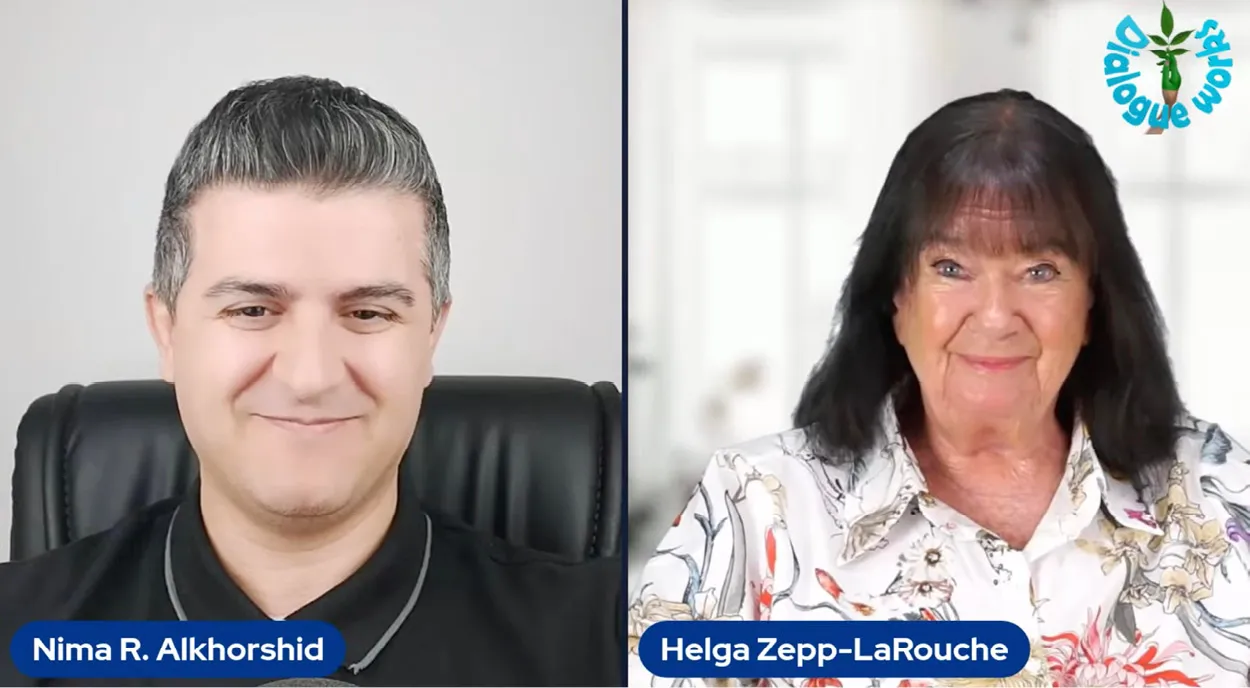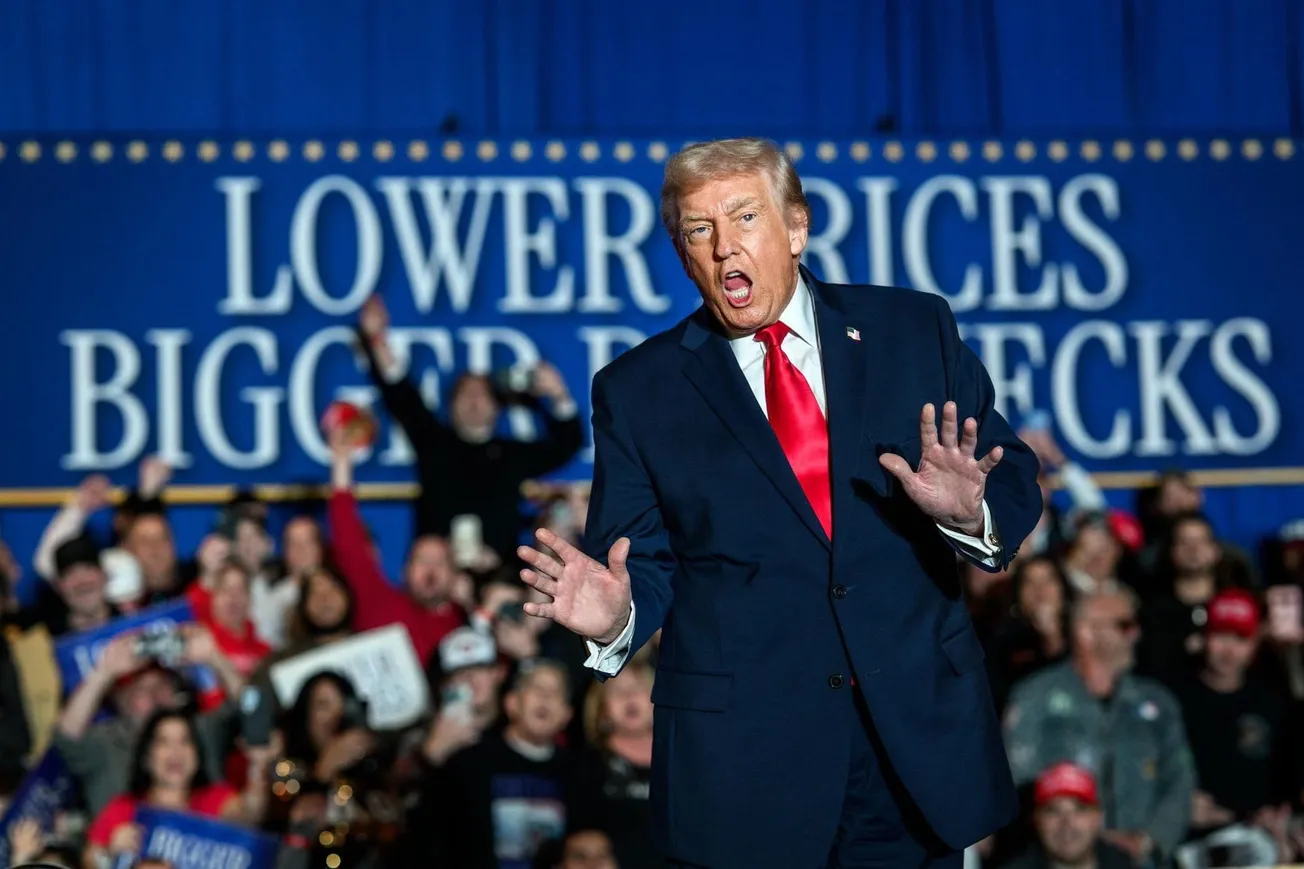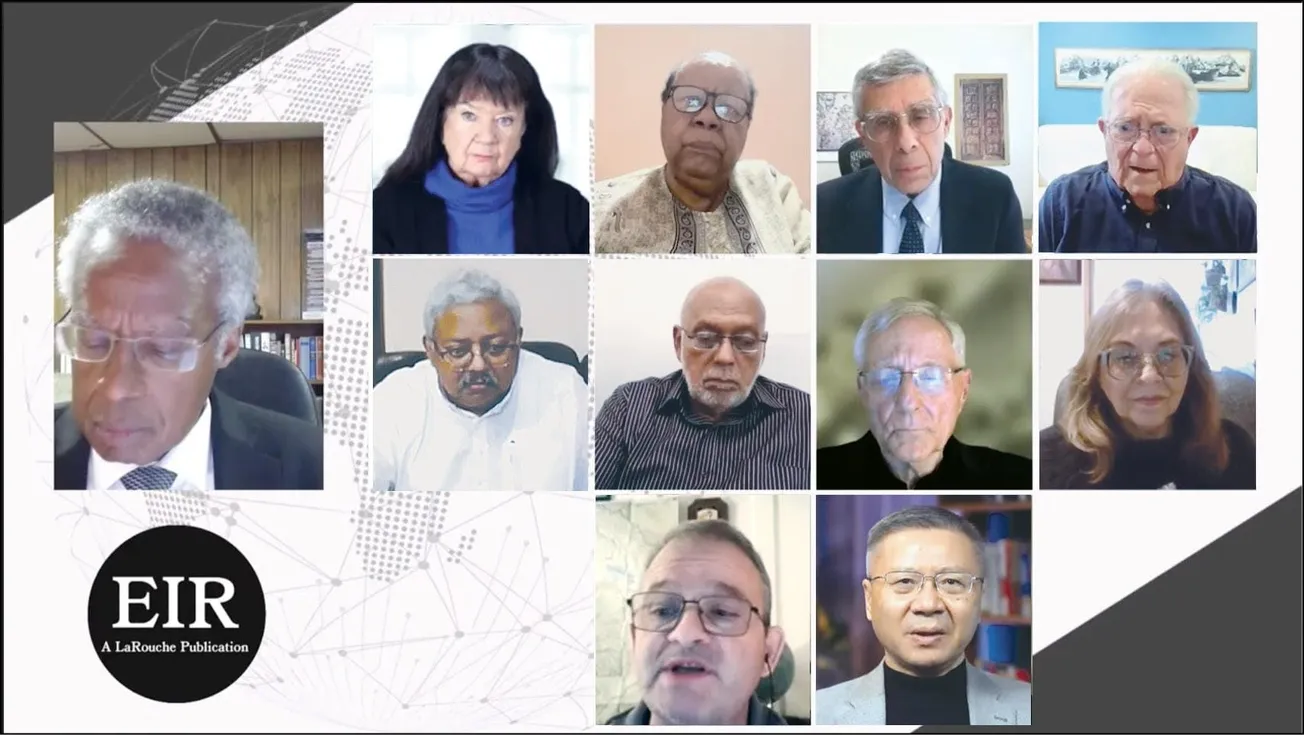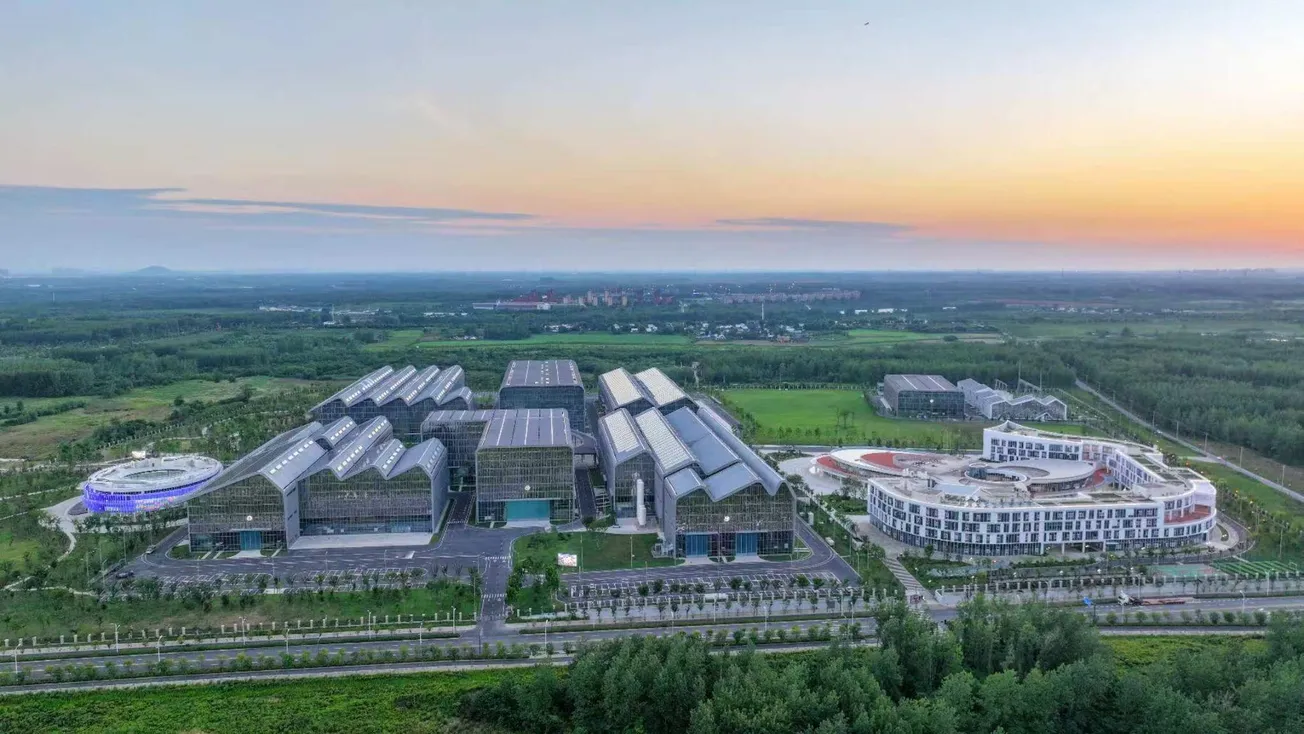Nima R. Alkhorshid, host of Dialogue Works, an internet program based in Brazil, interviewed Helga Zepp-LaRouche, founder and leader of the Schiller Institute, on Aug. 22, 2024. It was broadcast on YouTube, under the headline, “Helga Zepp-LaRouche: Has NATO Gone Completely Insane?—Israel’s Gamble that Could Ignite Chaos!” EIR has edited the transcript, adding subheads.
Nima R. Alkhorshid: Recently we had a Ukrainian offensive on Russian soil. When it comes to the NATO strategy, as now in Ukraine, what’s their main plan, and what was behind this strategy in going onto Russian soil and attacking the Kursk region?
Helga Zepp-LaRouche: The whole purpose of it is to keep escalating against Russia, with the aim essentially to provoke Russia into doing some major reaction which, in the view of the present NATO planners, discredits Russia. If you look, for example, at The Times of London, today or yesterday, they basically say that the Western countries are much too conservative, they are always afraid of escalation, but that the whole behavior of Russia would have shown that there are no “red lines,” President Putin is just bluffing. And that line is extremely dangerous, because that propaganda line of NATO, which is transmitted throughout all the mainstream media, essentially has succeeded to a certain extent, to lull parts of the population to say there is no problem, there are no “red lines,” we can escalate evermore with heavy weapons. Let the Ukrainians use them deep into the territory of Russia; nothing will ever happen.
And with NATO, one has to look at the totality. We just found out from the New York Times yesterday, that already in March, President Biden agreed to sign a new U.S. nuclear strategy, which is top, top, top secret. There are apparently not even electronic copies of it, but only a few printed ones that are in the hands of very trusted national security people. And that, according to the little information known about it, assumes that the United States, and therefore NATO, will have to deal with three countries—Russia, China, and North Korea—simultaneously. Naturally, all of them are nuclear weapons powers.
So, in a certain sense, the collective West has been gripped by madness. I’ve been in politics for a long time, but I still try to understand, how can people be so absolutely irresponsible, and gamble, if it goes wrong, leading to the complete annihilation of the human species?
I have studied the difference between conventional war and nuclear war. There are excellent writings by former MIT Prof. Ted Postol and others, who have made very convincing arguments that once you use one nuclear weapon, it’s the logic of that type of weapon that eventually all of them will be used, which means you will have the destruction of civilization ten times over, followed by a nuclear winter for maybe 10 years—meaning absolutely no life on the planet will be left. And that’s what these people are gambling with!
So, the plan of NATO is—they have said it through the words of German Foreign Minister Baerbock: “ruin Russia”; U.S. Defense Secretary Austin saying: “weaken Russia.” They’re obsessed. And in a certain sense, the demonization of Russia, and now, more and more the enemy-image of China, it is purely ideological. It’s an obsession. It’s a mental disease, in my view, and the more people wake up to that reality, the better.
Dissociated ‘Gamers’
Alkhorshid: How did you find attitudes toward Russia, because in the West, when I talk to people like Paul Craig Roberts, he believes that the way Russia is handling the conflict with Ukraine, it’s going to be perceived by the West as Russia’s weakness. But we know that at the end of the day, Putin’s so cautious; he’s so prudent with this conflict with Ukraine, even with the attack on the Kursk region.
Why does the West think that Russia, if that’s the case, that Russia is afraid of us, Russia is afraid of escalation, Russia is not going to attack Ukraine, which wasn’t the case? And these assumptions are totally wrong, and some day in the future will be totally wrong on the part of NATO. But it doesn’t seem that they’re thinking that “let’s find another direction, let’s find a negotiated settlement.” And they didn’t choose that direction, and are right now attacking on Russian soil, which is totally different from what you’ve seen so far in Ukraine. How do you see the mindset of NATO right now?

Zepp-LaRouche: For quite some time, they have believed in their own doctrine, and I’m pretty sure that there are some people who think that they can win a nuclear war. Because, if you look at the strategy of China, they have explicitly a no first use nuclear doctrine; the Russian nuclear strategy is to say that they will only use nuclear weapons when the territorial integrity of Russia is in danger. And in the recent period, we have had several conferences, in which some speakers had participated in NATO maneuvers, and several of them testified that they were horrified when they saw with what ease the deployment of tactical nuclear weapons was ordered—always by the Americans. There was no concern for the existence of Germany, for example, dropping nuclear bombs on German territory—well, that’s part of the game. These people have completely dissociated themselves from the reality of what the consequence of war is.
I’m not of the war generation, but I remember the stories of my parents and relatives who did participate in the Second World War, and our people have forgotten how destroyed the cities were. And the present planners of NATO are reckless, they are irresponsible. That they don’t listen to the International Court of Justice or the International Criminal Court is obvious because, in a certain sense, one could argue that to prepare a war of aggression is a crime! If you want to bring somebody to court, you have to have the power to do so and, obviously, that doesn’t exist in the present situation. But I can only say, if you look at these war plans, they’re really talking with very problematic mindsets—to say the least.
Challenge to Unipolarity
Alkhorshid: And the role of Germany comes in here, which is so important in the European Union in my opinion. What we’ve seen from Germany, when this conflict was started, is that they were so hesitant to send weapons, to send aid to Ukraine, even to participate in the conflict. But right now, we see a totally different attitude coming out of Germany, even in Bild [leading German tabloid—ed.].
There are German tanks on Russian soil. My question is, how is Germany benefitting from this conflict? Germany is losing more than any country in the EU.
Zepp-LaRouche: It’s both a tragedy and also, in a certain sense, a farce. Because this present so-called “street light” coalition government [SPD, FDP, Greens], they’re being laughed at by the whole world as complete vassals of the Anglosphere. When German Chancellor Olaf Scholz was in Washington, in February 2022, even before the special military operation started, there was the famous joint press conference with Biden, and a reporter asked, what about the Nord Stream pipelines? And Biden answered, “if Russia invades ... the border of Ukraine again ... there will be no longer a Nord Stream 2. We will bring an end to it.” And Scholz was standing there like a little schoolboy and could only utter something stupid like “we do everything together.” The whole world is laughing about that, because now you have this new story from the Wall Street Journal, that supposedly Ukrainian President Volodymyr Zelensky knew about the plans to destroy the pipelines; that AFU head Valerii Zaluzhnyi did it despite orders not to—it’s a complicated story. I think this is a cover story. It’s causing a lot of unhappiness because the initial cover story was that Russia, itself, detonated the pipelines. European Commission President Ursula von der Leyen, for example, insinuated that.
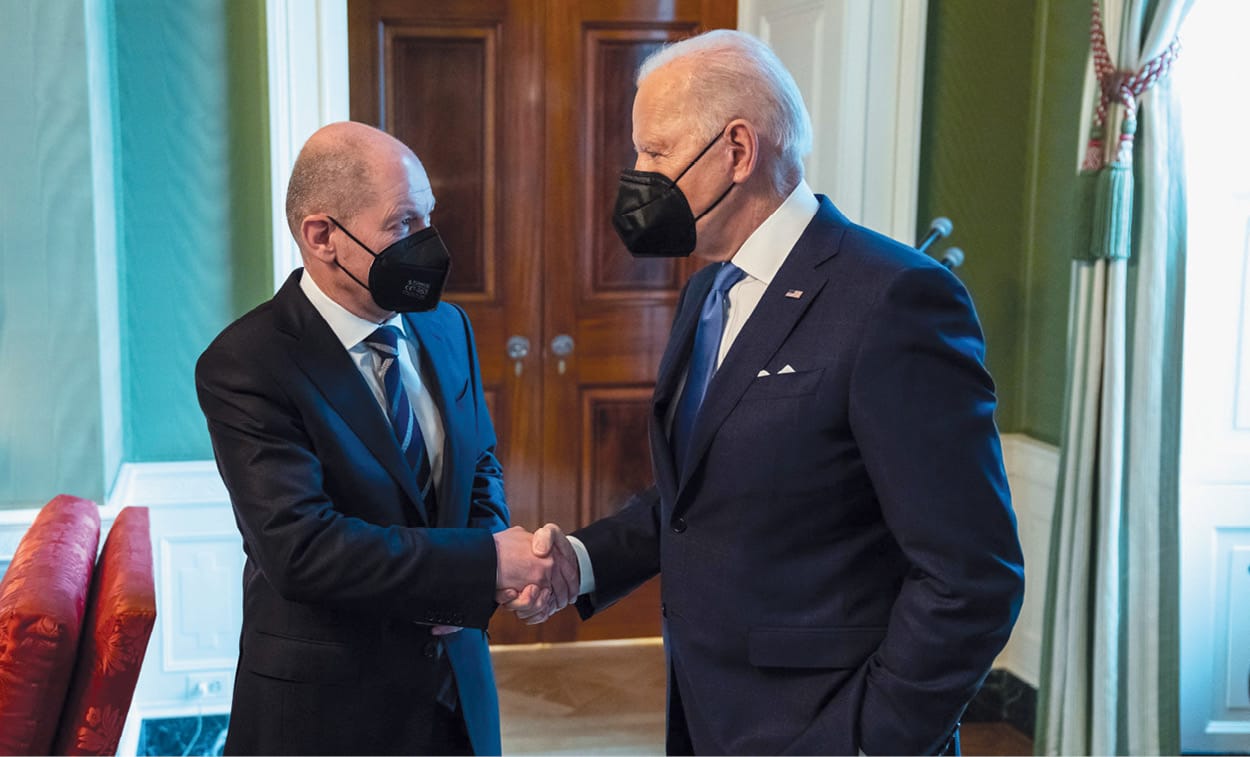
Now they’re a little bit more unhappy, because if it’s Ukraine, then why should Germany pay millions and millions of euros for weapons to Ukraine, when Ukraine was involved in committing an act of war and terrorism against Germany? The implication and consequences of what happened is unbelievable, because the destruction of the Nord Stream pipelines not only cut Germany off from cheap Russian gas, they are now paying three times as much for energy than almost every other country. The German economy, as a result of that, including the sanctions against Russia, is in a free fall! They’re losing everything that was built up after the Second World War—middle-level industry, the social system which goes with it, all of that is going down the drain. But the economic impact is just one element, because the largest strategic aim of those who destroyed the pipelines, was to cut Germany off from any relationship with Russia!
I don’t know if this is the final word of wisdom, but George Friedman, a well-known American strategist, made a famous interview that is quoted all the time, that it has long been the view of the U.S.—and I would add, the British, emphatically, as well—that the combination of German science and technology knowhow, and the vast resources of Russia, together, would mean that there would be a competitor on the Eurasian landmass, that would be more powerful than the United States—and that relationship has been targeted. One could say that for sure, because if you look at what happened with the Rapallo Treaty process, when Germany tried to escape from the Versailles Treaty “prison” by turning to Russia with the Rapallo Treaty in 1922, within one year, all participants in the Rapallo Treaty were dead, one way or another.
The only reason I’m not becoming desperate is because I know not all Germans are like that. For example, we have in less than two weeks local parliament elections in three East German states, and I expect a crushing collapse of the coalition government parties: The SPD probably will have a hard time making the 5% they need to be in the Parliament; the Free Democrats (FDP) will vanish; the Greens, hopefully, will vanish as well. And the new parties that are coming up have a distinctly different view of Russia and Ukraine. Also, in the German population, there is a minority which is waking up.
But I find it personally extremely disturbing: It was the Germans who were a large factor in causing 27 million people in the Soviet Union to die in the Second World War, which for the Russians up to the present day is still a very, very important issue. The “Great Patriotic War” is very fresh in their memory. In spite of that, the Soviet behavior at the end phase of the German reunification was extremely generous! There was no use of force, there was an agreement that a unified Germany could be part of the West, part of NATO, and the promises made by then U.S. Secretary of State James Baker III to Soviet President Mikhail Gorbachev that NATO will not move “one inch” to the East—that was made. There are enough witnesses who testify that that promise was an absolutely important element in the peaceful reunification of Germany. And that the Germans would have forgotten that, and turn around and make Russia the enemy again, I find this shameful behavior.
I can only say, for example, if you look at Putin’s speech to the German Parliament in 2001, it was optimistic, it was making one offer after the other about the Eurasian security architecture, he even spoke German for some part of the speech, quoting German poets and so forth. So there was a real opportunity to build a new security structure.
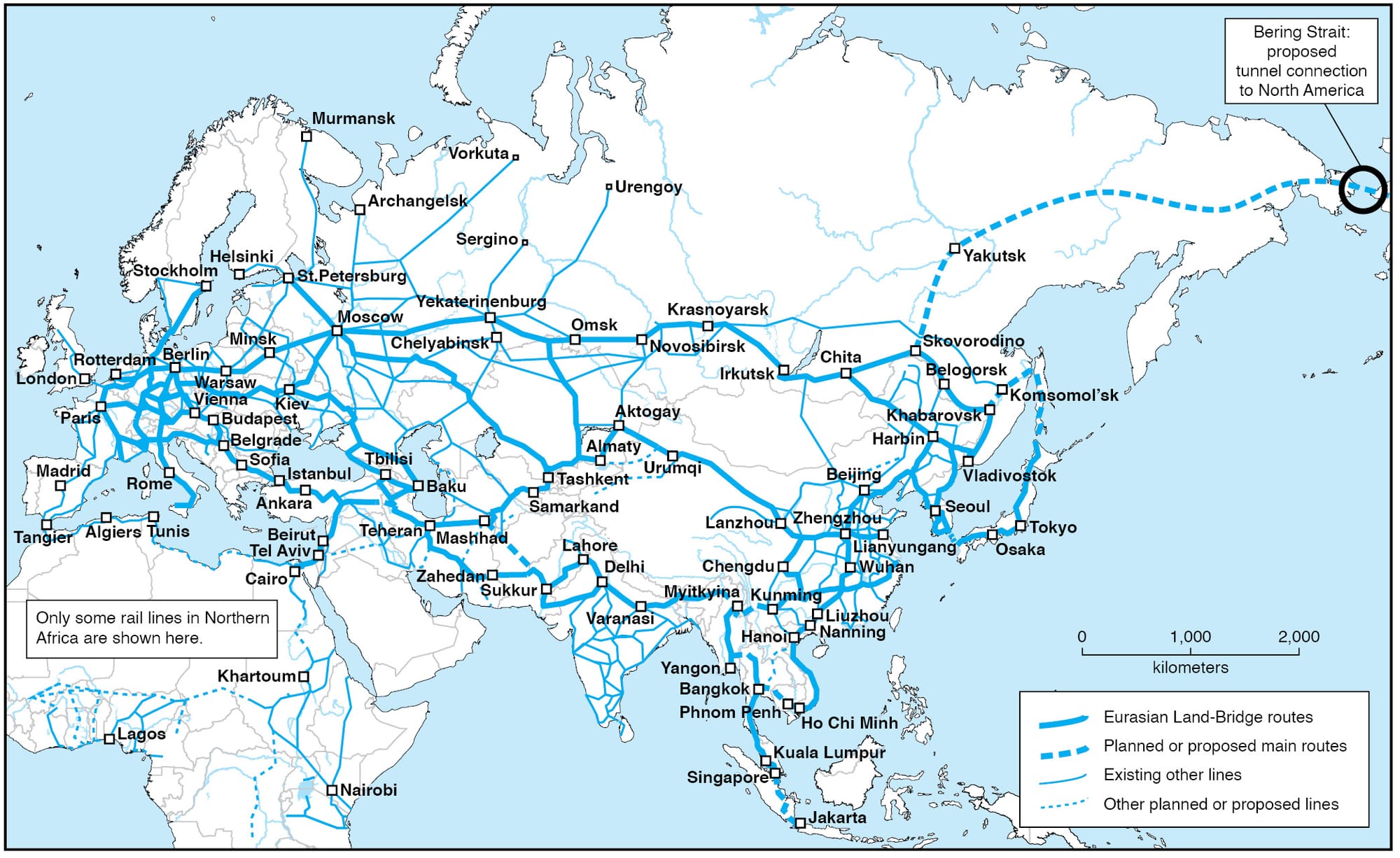
When the Soviet Union disintegrated, my late husband, Lyndon LaRouche, and myself, we proposed the Eurasian Land-Bridge, because the Iron Curtain had vanished, and there was the possibility to have a completely new security architecture based on joint economic development. And what was more obvious than to connect the population and industrial centers of Europe with those of Asia, through economic development corridors? That would have been the very solid economic basis for a new security and development architecture. But, for geostrategic reasons, this was sabotaged by the President Bush Sr. administration, by British Prime Minister Margaret Thatcher, and by French President Mitterrand. However, we took that proposal and organized for it. In five continents we had hundreds of conferences and seminars on the issue. And the idea now is very much alive in the form of the Belt and Road Initiative—the New Silk Road pushed by China. You have the BRICS, the BRICS-Plus, and the Global South, all orienting towards a new economic system.
So, NATO, for sure, if they have their way, and Global NATO expands— You have today an article in the National Security Journal, a person called Michael Rubin, he basically says Taiwan should learn from the Ukrainian offensive in Kursk, that they should destroy certain infrastructure in China, causing millions of people to die—nothing will happen. This is madness. We absolutely have to make sure that that is not what will happen, because it would be so easy to come out of this situation, if we can convince enough forces—individuals, groups, industry, middle-level entrepreneurs, and others—that the very interest of European nations, for example, would be to cooperate with this new emerging economic system, which is already the majority of the world. You have the BRICS, the BRICS-Plus; you have nine official members of the BRICS already, meeting in Kazan this year in October. I’m sure there will be several new members admitted, even if they want to go slowly—not to make it too hastily. But more than 40 countries have already expressed their desire to join the BRICS. That is the majority of the world population! If you count the people living in these countries, it’s 85% of the human population; it’s 70% of the GDP.
So, if you look at a country like Germany, which is an export-oriented nation, we have almost no raw materials, but we had a very high living standard, because we had high export rates and high scientific and technological throughput. For us, the only way to survive as an industrial nation would be to ally with the Global South. Indonesia soon will bypass Germany in terms of economic power. Much of Asia has incredible growth rates, while Europe is collapsing, the U.S. real economy, not the finance sector, but the real economy is collapsing.
We have to somehow try to get reason into this political situation by convincing the countries of Europe to ally with the Global South, and that would be the only thing that would shock the United States: if they would see that their so-called allies—which are not allies right now, but vassals—if they would turn around and say, “No, we’re not going along in this direction, which can only lead to the catastrophe of all of mankind.”
So, it’s extremely dangerous, but not hopeless, because the way out of this crisis is clearly already there.
Never Such an Incompetent Government
Alkhorshid: The important point you raise is, how is the European Union capable of doing this without the United States? Everybody is thinking that, considering Germany—and when it comes to Germany’s economy—how can they manage their economy without cheap Russian energy, which was to go through the Nord Stream pipelines? Right now they don’t have it. It doesn’t seem that any country right now is capable of providing Germany with that type of energy at the same kind of price.
In your opinion, in the German culture, in the German government, do they really perceive that without Russia, they may not be able to manage their economy? They may not be able to get better, and overcome these difficulties that they’re having right now. Or, are they thinking of doing without Russia, just getting closer to the United States? The energy from the United States is three, four, five times as expensive. Do they really think that they have to have some sort of relationship with Russia? Or are they just ignoring what Russia is, and how important Russia is for their economy and their growth?
Zepp-LaRouche: We’ve never had such an incompetent government in the entire postwar history of Germany. We used to have leaders you may not have agreed with, but they had stature, they had knowledge, they knew what diplomacy was. Now, we have a crop of politicians in these positions. We have a foreign minister [Baerbock] for whom the word “diplomacy” is an alien notion. She’s probably never heard it. We have an economics minister [Habeck] who used to be an author of children’s books. He should have stayed in that profession!
These people have no respect for what previous generations did. They are captured by their neoliberal ideology, which goes with all kinds of—the Russian foreign minister once called it “post-Christian values.” These government people are so incompetent that they believe their own ideology, which Russian Foreign Minister Lavrov once called a “post-Christian value set.”
The problem is that in Germany you have right now a group of politicians in power, liberals, the Free Democratic Party—they’re not even the old liberals any more, like Hans-Dietrich Genscher and the people who really thought that liberty means something. Now, they’re just “everything goes”; there are no standards any more. They don’t understand the economy! You cannot have a highly industrialized economy like Germany and go to energy-flux densities in the production process which only suit an agrarian society. If you only have solar and wind power, which have very low energy-flux densities, then it’s clear that these industries that are energy-dependent, and have a high consumption of energy, they go abroad or they go bankrupt. There’s right now an outflow of investment into the United States, into China, and the bankruptcy wave in Germany is skyrocketing.
So, we are heading for an extremely hard period, because everybody will go bankrupt: shop owners, restaurants, livestock growers, farmers. And the reality is that the income of these formerly productive branches is how the very educated and highly skilled social system was financed—so that will break away. And now you have the effort by this Defense Minister Pistorius, can you imagine, he’s calling for an open militarization, and he says he wants to make Germany “war ready.” Who should pay for all of that? Naturally, you look at the budget, and all the social areas are being cut: money for childcare, money for education, money for health care. They’re closing hospitals right and left. Throughout Germany, I don’t know how many dozens of hospitals are being closed, and as a result the actual healthcare for the population is what is suffering.
That means we are moving in a very dangerous way toward a Schachtian war economy, and this will all fall apart. The EU is not doing that well, because you have some countries like Hungary, and Prime Minister Viktor Orbán, who did the only reasonable thing: When Hungary assumed the chairmanship of the European Union, the first thing he did, on the second day, he went to Kyiv and talked to Zelensky; then he went to Moscow and talked to Putin; then he went to Beijing and talked to President Xi Jinping. Then he traveled from Beijing directly to Washington for the NATO summit, and from there he went to Mar-a-Lago to talk to former President Donald Trump. He was extremely useful, because he made the road to diplomacy open again.
Now, what happened? Ursula von der Leyen is threatening that the EU will hold no major meetings in Hungary for the half-year of its chairmanship.
There are other countries in Europe that agree with Orbán: Slovakia, for example. Other countries in the Balkans really have second thoughts. Italy is very divided. Look at France, which is in chaos. After the elections for Parliament, they could not even form a government, and I expect bloodshed in terms of the election result for the German coalition government on Sept. 1.
So, Europe is going into turmoil, and the effort to push through a militarization, with 2% of the budgets for military build-up—some are demanding even more—that will not function. The social cohesion of Europe will disintegrate, and that is why we have to put the alternative on the agenda. The alternative is to say, let’s replace confrontation with cooperation. We in Europe should have good relations with the BRICS countries; we should cooperate with the global majority. And the United States would be left to either act on their own, or join with Europe in doing that. People are afraid to do that; they’re even afraid to say what I’m saying. But what is the greater danger? Is the greater danger that we end up in World War III, or is the bigger danger that we openly discuss alternatives?
Security With Development
Now, I have proposed since the special military operation started, that we have to go to a new security and development architecture, which includes every single country on the planet. That is in the tradition of the Peace of Westphalia. The Peace of Westphalia ended 150 years of religious warfare in Europe—the Thirty Years’ War was just the last phase of that. And it happened because people realized that if they continued to fight, there would be nobody left to enjoy the victory, because at that time, already, one-third of all people, villages—everything was destroyed. They sat down, and for four years negotiated new principles, and it ended up with the Treaty of Westphalia, which was the beginning of international law.
Is that not the condition in which we find ourselves today, in the age of thermonuclear weapons: that if we continue, there will be nobody left to enjoy the victory? Should that not be the incentive to say, “We should find a way to create a global security and development architecture, which takes into account the interests of everybody”? Are we not the human species, gifted with creative reason, so that we can solve any problem, by thinking on a higher level to find a solution that is on a different plane than that on which the conflict arose?
I proposed ten principles for how such a security architecture could function. It has seven very important principles concerning the economy and security issues, and then the last three are of a more philosophical nature, for how we have to change our thinking in order to arrive there. And I would hope that people would respond to these. We already have found a great interest among many nations, because right now, it’s really a moral test for all of mankind: Are we capable of escaping a destiny that would end everything? Are we capable of coming up with a solution to think otherwise? And the majority of people want to go in a different direction.
Alkhorshid: You mention that they’re talking about militarizing Germany. Do you think that in the German government they really believe that Russia would attack Germany? What do you think would be the reason for Russia to attack Germany, in their mind?
Zepp-LaRouche: Various Russian leaders have said very clearly that there are red lines. For example, F-16s in Ukraine, or foreign mercenaries would be met with an appropriate response, not only targeting such military equipment, but also the command centers from which the decision was made to deploy these. That makes several parts of Germany prime targets, such as the Wiesbaden headquarters for this Ukraine operation; Ramstein; Büchel, where the U.S. nuclear weapons are stationed, and others. So I do not exclude that if escalation continues, it could come to that!
If you take away the provocations of NATO, there is no reason whatsoever, zero, nada, nothing. Russia has no imperial intentions, and to put this out as a lie, to say, look, if we allow Putin to take all of Ukraine, that he will go to the Baltics and then Poland, and then even other NATO countries—that is not proven, there is absolutely nothing. There was a big incident in the German official press office, where a journalist said, “I want to see the proof. Show me the quotes where Putin said that.” And they couldn’t prove it, because it does not exist!
Professor John Mearsheimer, who is a moderate American, mainstream academic—you cannot accuse him of being a radical, he’s very solid—he just made a very long documentation going into the pre-history of the Ukraine crisis, and he also emphatically makes the point that there are many proofs that Russia does not have any imperial ambitions or intention to revive the Soviet Union. One of these proofs is that, when the special military operation started in February 2022, Putin had very few troops at the Ukrainian border. He did not expect to have a large military operation. Four days after the special military operation had started, he already wanted to negotiate, and come to terms with the Ukrainians.
That whole idea is just propaganda. And in Germany now, you are not allowed to even say such things. You are risking punishment by fines. There is a tremendous effort to suppress any of these issues. There was an effort by the Interior Minister to even forbid totally, unilaterally, a magazine [Compact-Magazin GmbH]—and I don’t agree with the content of that magazine—but what is at stake here is the First Amendment of the United States Constitution, or the freedom of opinion and freedom of press in the German Constitution as well. So they’re trying to act like Goebbels, to force people to be quiet about these questions. This is why we have to go to social media in the Global South, to hopefully influence them, as well as some people who are listening in Europe. That’s how far and how bad it has become! This is why Dialogue Works is really important, because I know a lot of people in Germany also watch it. So, I want to thank you, that you have me here.
Alkhorshid: My pleasure. The other thing, right now, would be the policy of Germany, and maybe the European Union, toward the conflict in the Middle East: The European Union was so cautious about what’s going on in the Middle East. They’re not happy with the situation, but it seems that they cannot participate in any effective way to influence the situation. Do you think, at the end of the day, that the European Union has the capacity of participating in the conflict in the Middle East, in order to bring some sort of sanity to this conflict? It is getting totally out of control in the hands of the United States. What role would you consider for the European Union to play?
A Plan for Southwest Asia
Zepp-LaRouche: The fact is that both the International Court of Justice in The Hague, and the International Criminal Court, made very clear rulings condemning Netanyahu, and the ICC prosecutor [Karim Khan] has requested an arrest warrant for him. And while the final decision is still outstanding, “plausible genocide” and all these similar formulations, however, did not prevent the German government from clearly taking the side of Israel, which is tragic! In a certain sense, they make the Palestinians pay belatedly for the crimes of the National Socialists, which is really terrible, terrible!
Josep Borrell, who is the outgoing EU High Representative for Foreign Affairs and Security Policy, made some cautious statements. But I don’t think they will break out of the control of the Anglosphere—the British and the United States. However, I do not take the failure of certain institutions as the final word, condemning the rest of the world to doing nothing. My late husband, Lyndon LaRouche, already in 1975 had proposed a plan for Southwest Asia, which he called the Oasis Plan. If you look at this region, it’s all desert. If you fly over it, for hours and hours, yellow, yellow, brown, brown; there are no green trees, nothing. And many of the wars in the Middle East were around the scarcity of water, and the control of water.
So, what LaRouche proposed already in 1975, was the idea to produce lots of new freshwater through desalination of large amounts of ocean water, through building canals, irrigation. And at the time, he discussed it not only with the Iraqi Ba’ath Party and many leaders of the developing countries, but also Abba Eban of Israel’s Mapai (Labor) Party. And more recently, when this whole horrible situation in Gaza broke out, we reactivated that plan: We actualized it, and made an animation video, showing how this is all feasible. The Chinese, for example, they have greened a desert in the northwest of China, of a territory the size of Germany! What had been complete desert is now forest, agriculture, tourism. The farmers are becoming wealthy. So, with modern technology, you can transform seemingly hopeless areas in the world, and make them actually lush landscape full of flowers and multiple harvests; well-being for the people.
We started to organize for that. The Schiller Institute has already had two major conferences, with ambassadors—two Palestinian ambassadors, from Copenhagen and from UNESCO; a South African ambassador; other diplomats from the region—where we presented the plan. And that idea started to catch on. Now we are planning, as soon as we can, a really big conference, hopefully even in Southwest Asia, where we would present all the plans that could be done; how it could transform the living conditions for the people.

You have to give hope to young people! Right now 20% of the people in Gaza are in acute starvation. There will never be peace if we just continue the way it is now. You have to have a vision. The way I look at this, the entire region—from India to the Mediterranean, from the Caucasus to the Persian Gulf—that whole area is the potential hub for the connection between Asia and Europe, Asia and Africa. And it used to be that. With the ancient Silk Road, you had all of the cities—Samarkand, Damascus—they were all parts of the Silk Road, on which not only were goods exchanged, but technologies and culture, philosophy—and this region could have all of that in the future. Baghdad was once the most advanced city in the world, during the Abbasid Dynasty.
And there are some very wealthy countries, building all kinds of majestic things. If we could convince some of them to invest only a portion of what they are doing into the economic infrastructure, within a few decades you could have that region as densely developed with infrastructure as you find today in Europe. Germany, for example, is a country where you have a very rich infrastructure, where you have waterways, highways, railways, all integrated, and such dense infrastructure is a precondition to have advanced industry.
So, I can see very clearly how this region, which is now—Saudi Arabia is about to become part of the BRICS; Iran is part of the BRICS, Egypt is part of the BRICS, the United Arab Emirates are part of the BRICS; India—how that whole region could really take up such a plan, such as the Oasis Plan, and start implementing it. And then young people, instead of thinking how to perpetuate revenge, would be thinking about how to become a teacher, a scientist, a musician—how to build a future. And such a dramatic paradigm shift would really probably be what inspires the whole world; that cooperation is so much more advantageous than the present geostrategic hatred that is being pursued.
So this Oasis Plan is the hope for the region. And I don’t know if the EU will do it. Maybe it will be countries like Italy: They had, for example, political leaders like Enrico Mattei, who were thinking in this direction already in the 1950s and 1960s. We could connect to these traditions, and then Europe could play a productive role.
Connecting East and West
Alkhorshid: That would be amazing: having Russia, China, and the United States—maybe even Iran, where you have a new President as well—all talking to each other! Because right now, we’ve learned that Azerbaijan is asking to be part of the BRICS, and it seems that the BRICS is becoming more and more important in terms of the economy of the world, in terms of the political parties that are part of the BRICS.
But in the end, what matters the most is how can we connect the East and the West together, and have some sort of political salon, in order to have some sort of negotiations, when we are lacking any sort of connection to Russia. For example, take the situation right now in the Middle East, or the current situation between Iran and Israel. If there wasn’t a war in Ukraine, the United States would have asked them to be part of solving this problem between Iran and Israel. But having the conflict in Ukraine makes it impossible. There is no communication between the United States and Russia. Right now, they’ve even asked China to talk with Iran.
But as you mentioned, it’s so important to have these connections in order to negotiate, to talk, and it seems that we’re losing this stability that we have had before.
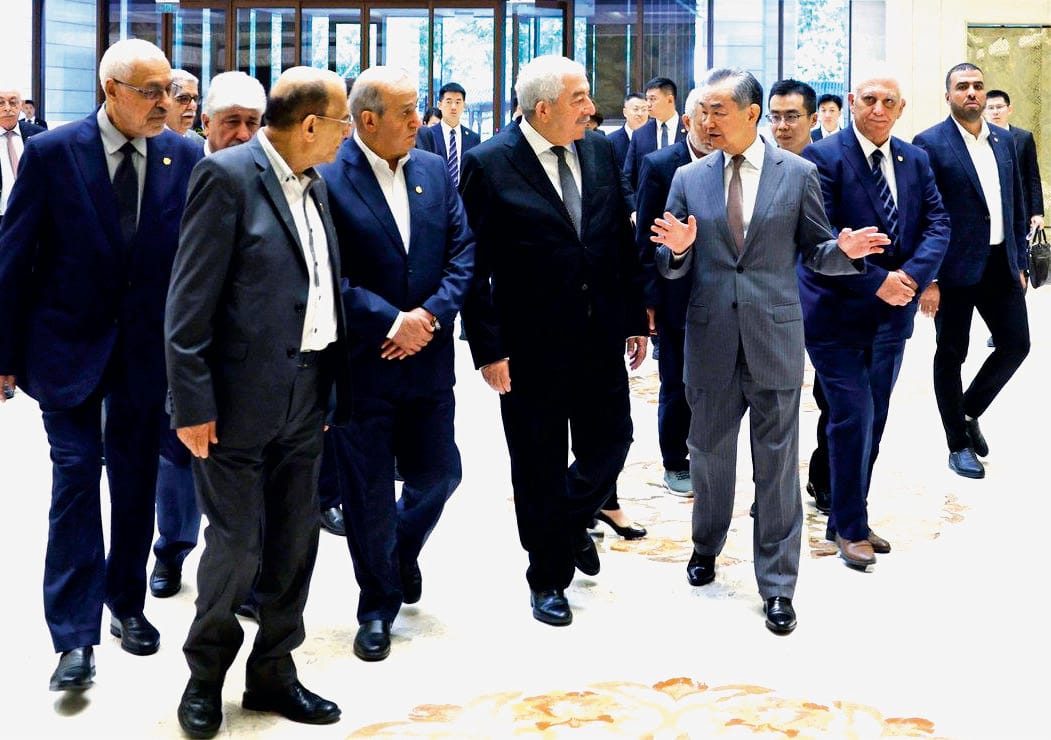
Zepp-LaRouche: Yes, it’s true. China is playing a major role in the Ukraine crisis; they have an emissary who traveled just recently to Ukraine and other countries. They’re doing similarly in the Middle East. They just got these 14 Palestinian factions together, and they got historic conflict between Saudi Arabia and Iran, maybe not solved forever, but they’re talking again; they restored diplomatic relations. So China, for sure, is playing a very positive role.
But, unfortunately, in the Western media and think tanks, not only has the image of Russia been darkened, but increasingly the U.S. is pushing decoupling, “de-risking,” and the EU is dancing around, saying, “Oh, maybe we don’t want to decouple, but de-risk”—this is all caving in to the pressure from the United States.
But, there is one realm where there is still a degree of freedom, and that is the Global Majority, because Brazil, Indonesia, Egypt, South Africa, India, if they act together and say, “We are the global majority and we have the right to have a voice”— For example, next year will be the 70th anniversary of the Bandung Conference, and what you have seen with the rise of China, is that the Non-Aligned Movement has had a renaissance. The Non-Aligned Movement was already moving towards a new world economic order in the 1960s and 1970s, but then that was destabilized by counterforces. But when China started its spectacular rise, lifting 850 million of its people out of poverty, and then offering the Belt and Road Initiative—the New Silk Road—for cooperation to many countries in the Global South, this gave these countries for the first time in history the possibility to overcome poverty and underdevelopment. Now there are more modern railways in Indonesia and Laos than in Europe or the United States! So, this is just the beginning.
At the Bandung Conference, President Sukarno of Indonesia and Prime Minister Nehru of India said that neocolonialism still existed, so watch out for it. It reemerged in the form of IMF conditionalities and denial of credit for development. The World Bank was very selective in what they would finance. Now, with the New Development Bank headquartered in Shanghai, about which Brazilian President Lula said this will become the great bank of the Global South, there is the potential that all of these countries can take their own road to development.
There is a huge discussion within African and Asian countries: They do not want to be exporters of raw materials any longer. They want to have the value chain in their own countries; they want to become industrial countries; they want to become middle-level-income countries and have good education systems. And I keep saying to the Europeans: If you would not be so ideologically off, Europe would help the Global South to invest in 2-3 billion new, productive jobs, which is what is needed.
For example, Africa will have, by the year 2050, a population of 2.5 billion people! Now that means Africa alone will need more than 1 billion new productive jobs for all these young people. Wouldn’t it be better for the Africans, for the Europeans, and for everybody else to do that, rather than have thousands and thousands of young people, old people, traipsing through the Sahara, dying of thirst, and those who make it through the Sahara, then drown while trying to cross the Mediterranean to Europe, and then have a migrant crisis, which some people are just going crazy about? Wouldn’t it be better to really say, we will help the Global South to finally overcome the relics of 500 years of colonialism; we have the know-how and we have the interest to have a stable future economy, and we can cooperate!
So, we have to really get the voice of the Global South to be more strongly heard. You should also, if I may give you this advice: Why don’t you invite people from Indonesia, from Brazil, from South Africa, and ask them, “What is your intention? What is it that you want for the future? What role do you want the United States to play, or the Europeans?” Because we have to get the voices of several countries that have quite exceptional leaders, give them a voice so that the people in Germany, who are only listening to the mainstream media, can actually hear what are the aspirations of these countries! That would help a lot to shape the debate. We are all sitting in one boat. And because of nuclear weapons, because of the internet, because of pandemics, you can’t find a solution for only parts of the world, and then have the rest of the world go under. We need to have a solution in which everybody can prosper, everybody can have a good life. And if I would not be fundamentally convinced that that is realistically possible, I would have despaired a long time ago. But I see the trend of the times going in this direction.


